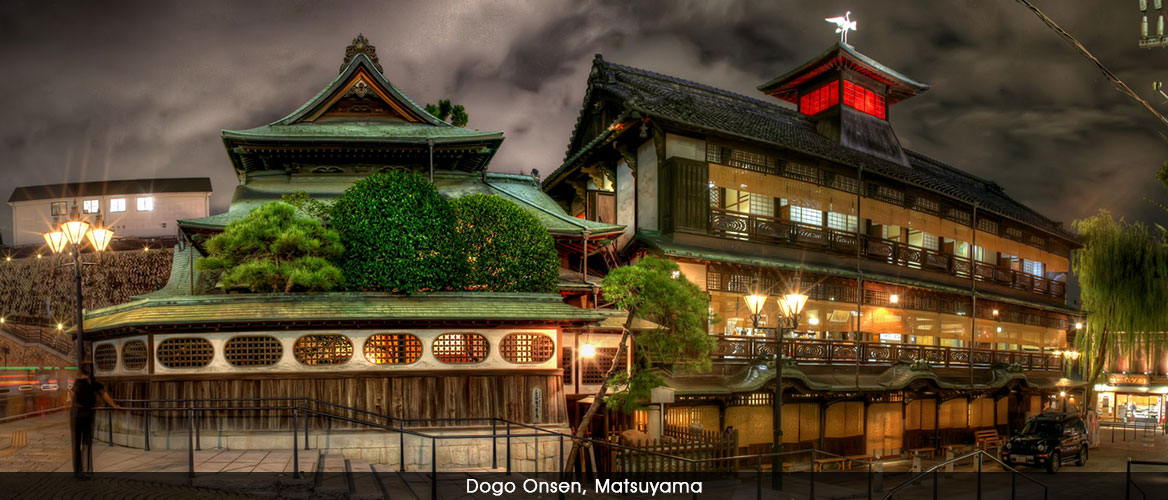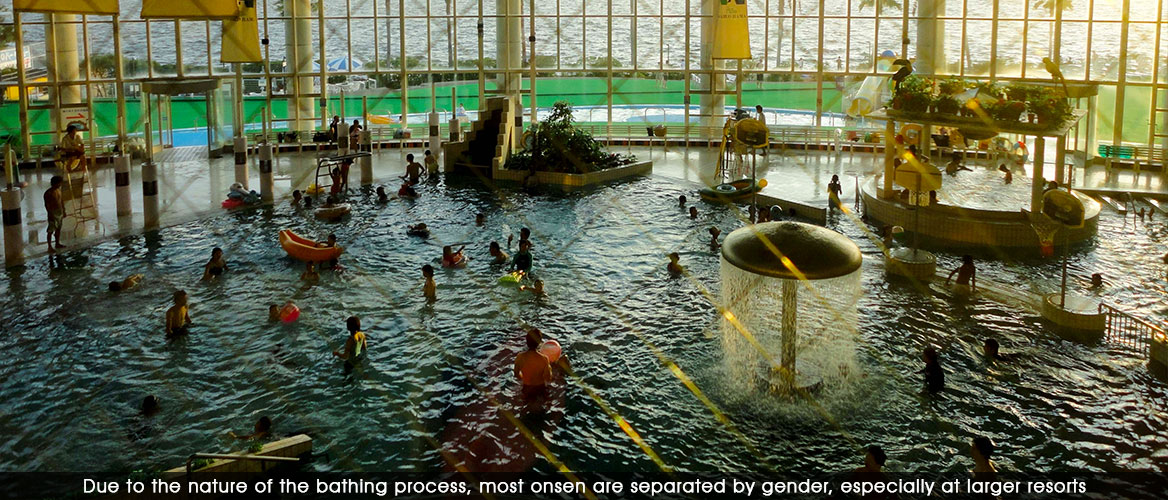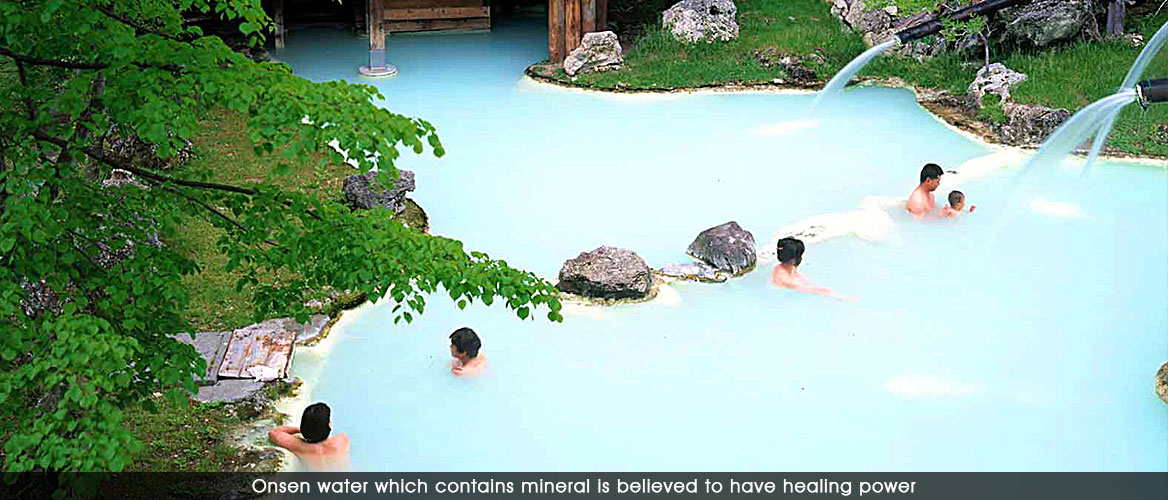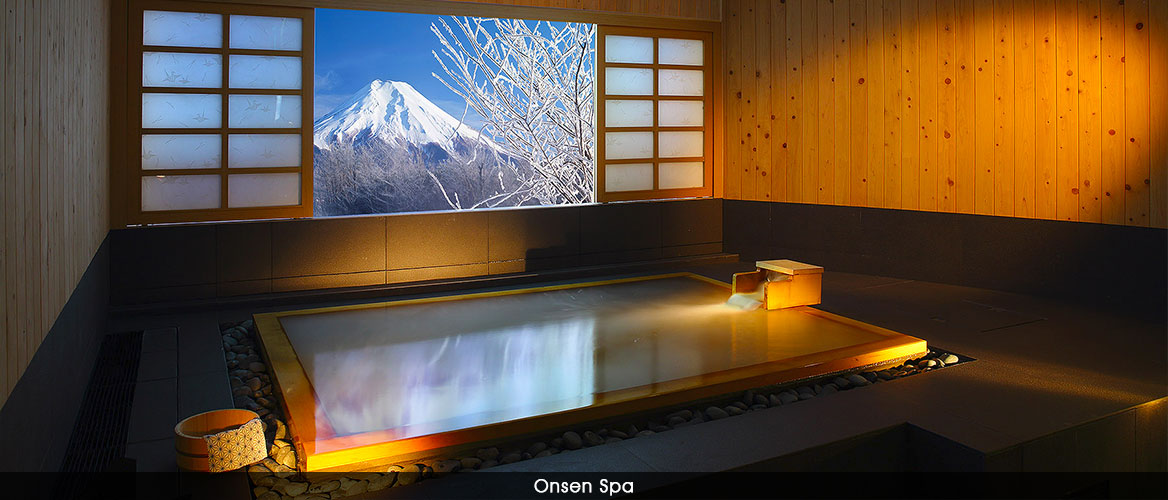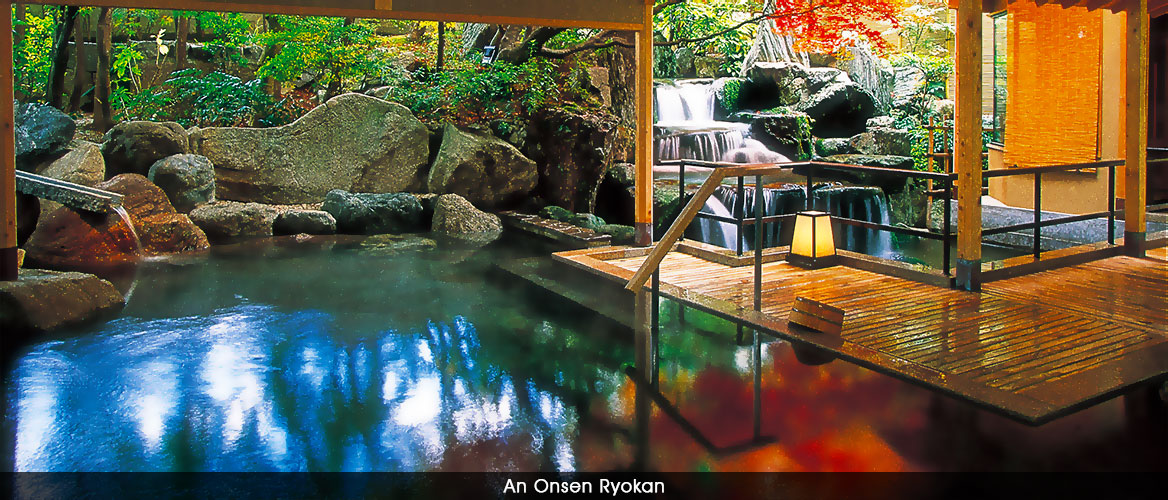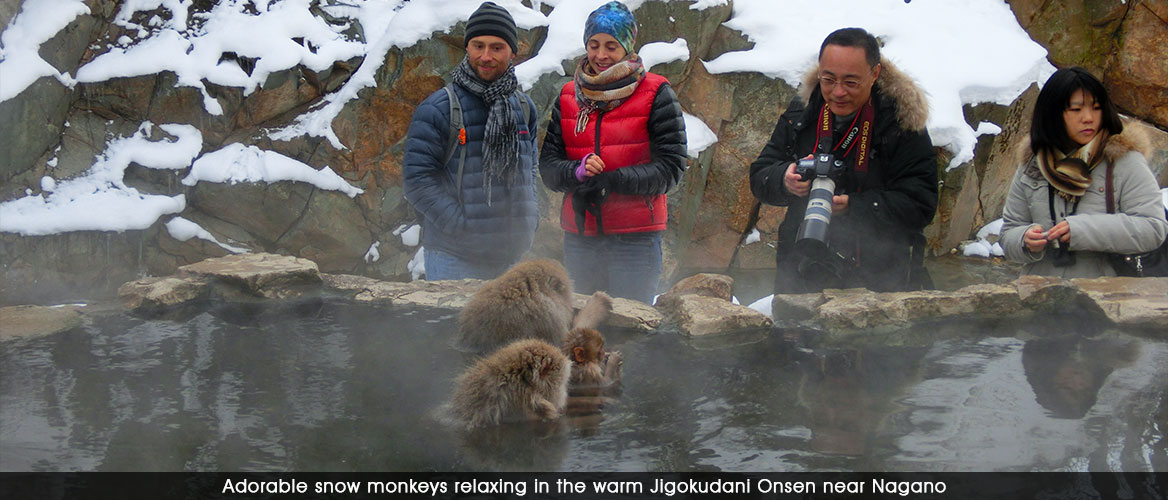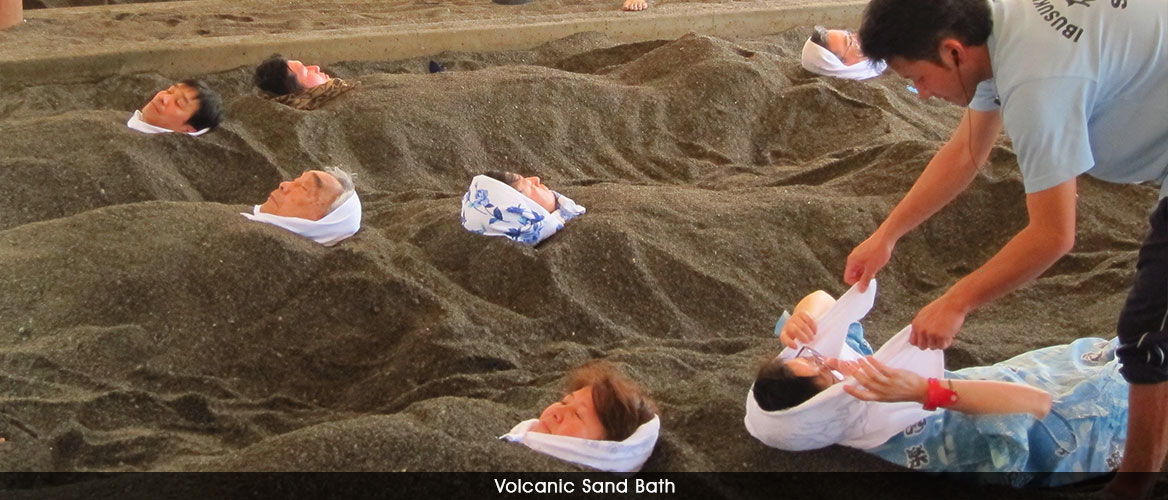Japan is peppered with volcanic hot springs, known as onsen. Communal bathing in these has been a custom for centuries, as a religious ritual (from the Shinto emphasis on purification), health cure, or just for pleasure. Many spa baths tap into natural volcanic activity, taming the thermal waters; some are artificially heated and enhanced with therapeutic herbal concoctions. A visit to an onsen is an antidote to the hectic pace of urban life, a chance to recuperate after sightseeing or business, and an insight into a soothing and companionable side of Japan. Hot springs are even used by animals: Jigokudani Onsen near Nagano, for example, is popular with wild monkeys, who sit in the pools to keep warm.
Types of Onsen
The variety of onsen is phenomenal. They come in every format: natural and man-made; indoors and outdoors; as small as a bath and as large as a swimming pool; lobster-hot and lukewarm; milky and clear; sulfurously foul-smelling and sweetly earthy. Certain chemical compositions in the waters are said to help different ailments, such as arthritis, hypertension, and skin problems.
Outdoor baths are generally rustic, made of wood or stone, and often by a river or the sea. Some are in caves, under jungle canopies, or behind waterfalls, or take the form of thermal mud or sand baths. Many onsen are in the mountains: after hiking, a dip in an outdoor pool in deep snow with a mountain view is perhaps the ultimate onsen experience. Exotic indoor onsen include baths in cable cars.
Many onsen operate as hotels, with meals and onsen facilities all included in the room price per person. Staying overnight allows you to sample the pleasures of night-time bathing. Entire onsen resorts have been developed so that between baths guests may wander around the town in their yukata (lightweight kimonos) or dine on local fare, often excellent.
Other onsen hotels are in isolated hamlets in spectacular settings. At some onsen hotels and public bathhouses it is possible to stay for just a few hours rather than overnight. Fees can be very reasonable for these short visits – from ¥300 to ¥2,000. English may not be spoken at onsen hotels and local tourist offices; try to have a Japanese-speaker help you book accommodations.
Onsen Etiquette
Etiquette at onsen is similar to that for communal baths in ryokan. Pools are usually single-sex; women rarely use mixed pools, except perhaps at night, when mixed bathing is more acceptable. Occasionally people in outdoor pools (rotenburo) wear swimsuits, but mostly everyone is naked. Nonetheless, the atmosphere is not sleazy, and visitors need have no qualms.
If you’re staying overnight, change into the yukata provided in your room; either way, when you reach the baths, leave all clothes and possessions in the changing room. As with any Japanese bath, wash and rinse yourself thoroughly at the showers and taps provided outside the bath and take great care not to get any soap or shampoo in the bath itself.
The small towel provided can be used as a washcloth, draped across strategic parts of your body, placed on your head while in the pool (said to prevent fainting), or used to dry yourself when you emerge.
Keep all jewelry well away from steam, as the minerals can tarnish metal. Pregnant women, babies and young children, and anyone with high blood pressure should not enter the hottest baths without consulting a doctor first.
Our expert Travel Specialists are keen onsen lovers and can provide an exclusive list of the most exceptional hot springs across Japan.

